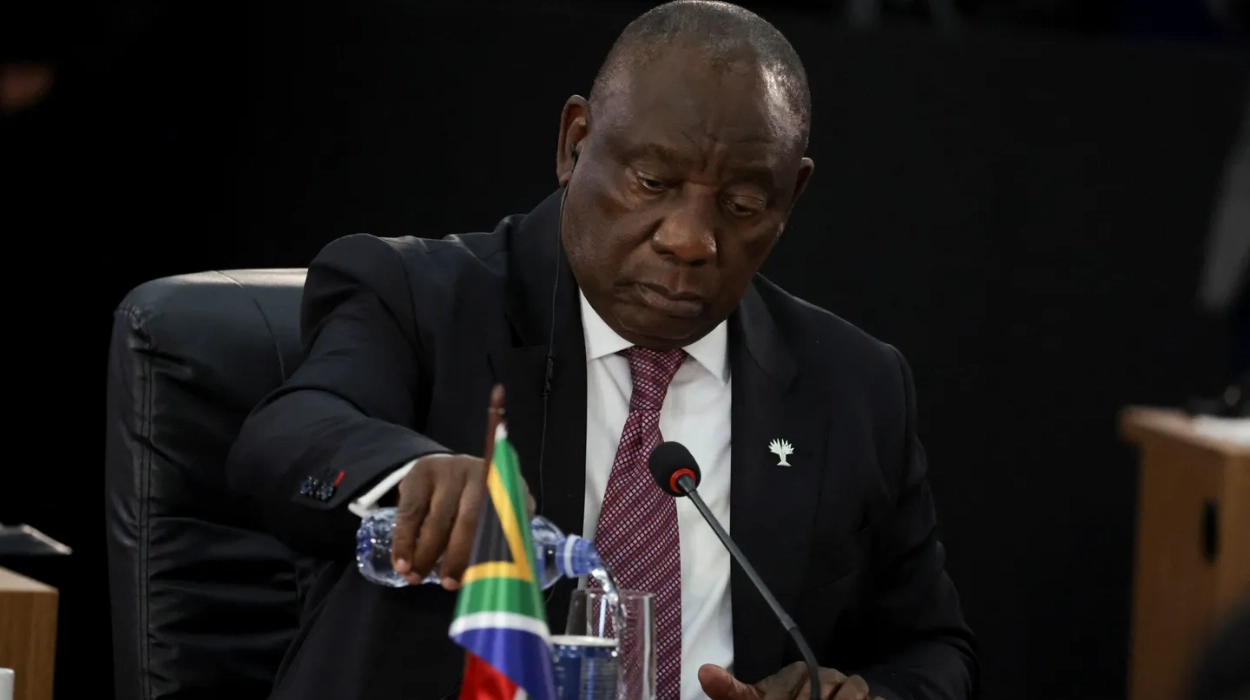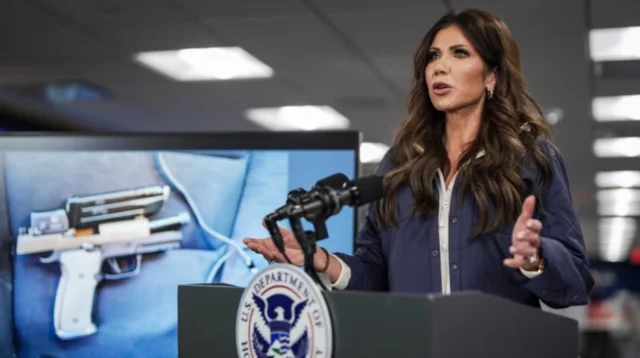The United States trade relationship with South Africa moved to a new stage of tension in mid-2025 as Washington announced a 30 percent tariff on South African items that would commence on August one. The action is one of the most open attacks so far on post-apartheid economic policies of South Africa by a significant trading partner. U.S. officials are justifying the tariff as a way of correcting what they term as non-reciprocal practice, as well as discriminatory, enshrined in the economic laws in South Africa, which are based on race.
Fueling the conflict is the Black Economic Empowerment (BEE) policies claimed by the U.S. as a barrier to American firms in the fair access to the market. The South African government considers BEE a key pillar of its transformation agenda, without which it will be difficult to ensure that past wrongs brought about by the apartheid era are rectified. The tariff threat is against the backdrop of more general global readjustment of trade policy in the second term of the Trump administration as economic leverage is regularly deployed to achieve a series of geopolitical and ideological compromises.
Disputed Trade Data and Diplomatic Engagement
South African President Cyril Ramaphosa has fiercely disagreed with the justification of the tariff. He argues that the U.S administration is basing its decisions on data which it has interpreted selectively on trade and which does not take into consideration the true nature of bilateral trade. The South African authorities maintain the position that their average tariffs on American products are not high, just 7.6 per cent, that more than half of American exports are admitted duty free under Most Favoured Nation terms.
Nevertheless, since the turn around of 2001, Pretoria has chosen engagement instead of retaliation even under high pressure public campaigns. On May 20, 2025 South Africa made a proposal of a draft framework on core areas of concern of the U.S.; on reciprocity of access, distortive procurement provisions and ownership requirements. This effort was after a series of top level talks during the June U.S-Africa summit, where the Trump administration had said that such changes to the tariff might be possible should South Africa commit to showing some policy flexibility.
Domestic Race Policies Under the Lens
Black Economic Empowerment and U.S. Concerns
The Black Economic Empowerment, implemented in 2003 and further extended in later years, requires more black ownership and involvement in large industries. These are controversial actions that have been the center of trade negotiations and the U.S. is representing this as a hidden trade restriction and unfairly impose costs on foreign investors.
South Africa argues that the policies are essential to correct the inbuilt inequality, and they cannot be simplified as mere protectionist tools. Pretoria highlights that BEE systems are implemented equally on both the foreign and domestic firms that conduct business in South Africa and that there are exemptions in a number of industries key among them being energy and agriculture where issues of international competitiveness are an issue.
Allegations of Discrimination and White Farmer Narratives
Even more emboldening the situation are the warning bells raised by the U.S. administration over what they term as the emergence of the discrimination of white farmers and minority owned businesses in South Africa. The South African government, although the claims may be politically appealing to certain quarters, has dismissed them as being sensationalized and politicized understandings of them that have no empirical grounds.
The administration of Ramaphosa states that BEE is not coequal to reverse discrimination but aims to offset privilege structurally to adhere to the constitutional and democratic principles. They are however allegations that have affected bilateral trust and also created a barrier in trade negotiations that are going on.
Political and Economic Impact for South Africa
Application of the tariff is likely to affect other major sectors of the South Africa economy in a cascading manner. Automobiles which comprise over 60 percent of South African manufacturing export to the U.S. are at imminent threat. Fruit and wine producers, respectively, also expect interruptions in their production process as a result of higher importation prices that could jeopardize more than 100,000 direct and indirect employment.
Business groups, particularly the South African Chamber of Commerce and Industry, have warned that the tariff could significantly undermine national export competitiveness, especially at a time when the economy is under pressure from high unemployment and sluggish growth. The government has sought to negotiate sectoral exemptions, particularly for shipbuilding and agricultural exports, while simultaneously exploring market diversification strategies in Asia and Latin America.
Broader Geopolitical and Trade Context
U.S. Trade Policy and Africa
The tariff against South Africa should also be viewed within the wider context of U.S.-Africa relations in 2025. Under the Trump administration’s second term, trade policy has returned to unilateralism, with African countries experiencing increasing scrutiny over domestic governance frameworks. There has been the usage of aid suspensions and tariff threats as ways of enforcing policy, which is meant to harmonise African economic systems with the expectations of their counterparts in the U.S.
The fact that South Africa was the sole African nation under this kind of a trade sanction is an addition to the standpoint of the country being high in the mind of Washington based on a strategy. The fact that the congress is still discussing the reauthorization of the African Growth and Opportunity Act (AGOA), which expires in September 2025, also increases the stakes. South Africa has been regarded by many African leaders as a harbinger in terms of how future trade relationships between African countries and the U.S might be under circumstances which are highly politically charged.
Strategic Negotiation and The Way Forward
The present stalemate is somehow regarded by trade specialists as part negotiation technique as it is policy by trade experts. The U.S. is putting the South African economy at some pressure in what seems to be South Africa testing how much recalibration it would have to provide in its domestic policy in order to receive favorable trade relations. Nevertheless, South Africa has its own limitations. The concessions seen as undermining the racial equity agenda at home will trigger a political backlash, especially when considered in an election year, which is likely to be held in mid-2026.
According to diplomatic sources, a compromise can be arrived at by carrying out policy reforms that will make their ownership standards more transparent but not dissolving the BEE structure. The South African negotiators are meanwhile lining up to meet and discuss with the U.S. trade officials within a new bilateral framework, which includes tariff favours as well as a set of socio-economic protectionists.
Competing Narratives and International Perception
This person has spoken on the topic: Analyst Will Tanner noted that
“The U.S. pushback reveals deep tensions between trade liberalization goals and domestic equity policies, highlighting the difficult choice South Africa faces balancing economic sovereignty with essential international partnerships.”
This is absolutely huge
— Will Tanner (@Will_Tanner_1) February 3, 2025
South Africa is going all in on Zimbabwe-style race communism and expropriation. It must be stopped, if the country is to survive
And now Trump is trying to stop it
A on the new law and how it compares to Mugabe's attached below pic.twitter.com/PGezJZuEaR
Tanner’s observation encapsulates the dilemma confronting Pretoria: the need to preserve economic sovereignty and social justice within a global trade framework increasingly intolerant of national exceptions. This tension is not unique to South Africa but reflects a growing trend where domestic equity goals collide with international liberalization agendas.
For many middle-income countries, this episode serves as a cautionary case on the limits of economic independence in an interconnected global marketplace. It also raises enduring questions about whose norms shape trade fairness and whether the current system allows for genuine plurality in economic models.
As deadlines approach and diplomatic maneuvering intensifies, the South Africa–U.S. trade standoff may set an important precedent. Whether compromise is reached or tensions escalate, the unfolding events will likely influence trade diplomacy far beyond the Southern African region, shaping conversations around economic justice, sovereignty, and global cooperation well into the next decade.





